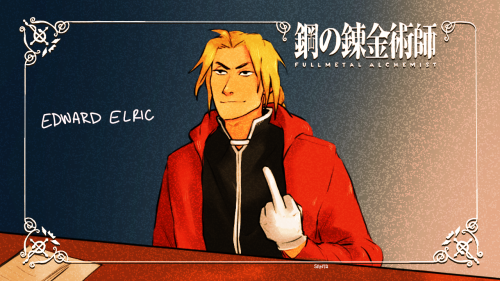Sitting In Her Room And Getting Bored All Day Is The Bravest Thing A Girl Can Do On A Sunday
sitting in her room and getting bored all day is the bravest thing a girl can do on a sunday
More Posts from Gendhb and Others







Evelyn and Philip open rp
what do you think of tone indicators in general?
unfortunately my thoughts on tone indicators are somewhat nuanced. fortunately, this is tumblr not twitter, so I can just write out my full thoughts in one post and be as verbose about it as feels necessary.
speaking as an autistic person (and I know there are other autistic people who don't hold this same view, this is just my perspective), I think as an accessibility tool, the extended set tone indicators in current popular use is fundamentally misguided.
the oldest ones, /s for sarcasm and /j for jokes, make sense. their notation isn't the most intuitive thing ("does /s mean sarcastic or serious?") but it's not too difficult to explain what they mean. I've had to spend my whole life learning by brute force what different tones of voice mean and what they change about how I'm supposed to interpret something, so I already know what "read this in a sarcastic voice" and "read this as a joke" are supposed to mean. my existing skills can be translated into the new form without too much effort.
the same thing applies to emoji and emoticons. I know what facial expressions mean, because I had to learn what they mean. figuring out if :) is sincere or not from context is a skill I've already needed to develop. it doesn't come naturally for me, but it's something I already at least somewhat know how to do.
most of the tone indicators in current use uh. don't work like this.
tone indicators like /ref or /nbh don't correspond to specific tones of voice. I don't have a "I'm making a reference" voice or a "I'm not talking about a person who's here" voice that I can picture the sentence being read in. these do not indicate tones, they're purely disambiguators. they clarify what something means without necessarily changing how it would be read out loud.
and on paper, that's fine, right? like, it's theoretically a good thing to take an otherwise ambiguous statement and add something to it that clarifies what you meant by it. the problem is that these non-tone tone indicators are not even remotely self-explanatory. it's up to me, the person who is being clarified to, to know what all these acronyms are supposed to mean, and how they change the way I'm supposed to interpret what something means.
it's, quite literally, a newly-invented second set of social cues that I'm expected to learn separately from the set that I've already spent my whole life figuring out, and it works completely differently.
sure, these rules are (in principle) less arbitrary than the rules of facial expressions and tones of voice and how long you're supposed to wait before it's your turn to speak, but they're also fully artificial and recently invented, which means they're currently in a constant state of flux. tone indicators go in and out of fashion all the time, and the "comprehensive lists" are never helpful.
in theory, I appreciate the idea of people going out of their way to clarify what they mean by potentially ambiguous things they post online. if it worked, that would be a really nice thing to do.
however, sometimes I imagine what the internet would be like without them. what if instead of using /s, the expectation was that if you're sarcastic online there's no guarantee that strangers reading your post will know what you meant? what if instead of inventing more and more acronyms to cover every possible potentially confusing situation, we just... expected one another to speak less ambiguously in the first place?
so, I on paper like the idea of tone indicators. I think it's good that some people are trying to be considerate by being extra clear about what they mean by things. but if tone indicators didn't exist, and people who wanted to be considerate in this way instead just made a point of phrasing things more clearly to begin with, I think that would be vastly preferable to even the most well-implemented tone indicator system.
also /pos sucks because there's something deeply and profoundly wrong for an abbreviation that means "I don't mean this as an insult, don't worry" to be spelled the same way as an acronym that's an insult
Just so we're all on the same page with the writer's strike.
If during the strike, it's announced about AI generated shows. We are not watching them. Not even out of curiosity. Let them fail every AI generated show they try make.
The human voice can not be replaced by AI. Don't let them try.
Lost followers after reblogging that whole thing about JKR being radicalized over the years, and that disturbs me.
Like if you think saying that people can be radicalized and manipulated into hate is somehow justifying it, yikes. And if you think that people are somehow just good or evil and that you are not at risk of buying into propaganda, have I got some very red flag news about that!
Idk if its because I am an older Millennial maybe (most who unfollowed were younger) but I watched a ton of that generation slide from one of the most progressive to the far right before my every eyes. Hell, my dad fought alongside his black friends in the Detroit race riots and now he watches Fox News 24/7 and talks about the border wall. Yet still claims he could never be racist because of how he used to be. He doesn’t even realize what he has become.
JKR isn’t a deluded old woman or innately evil, but in fact THE prime example of how well-meaning ignorance and privilege can be weaponized and encouraged down a pipeline, until it turns into a force of hate, and should be a cautionary tale about why educating and being open about these issues are necessary. Because there are those out there who will use those divisions and ignorance to their own ends. And just digging in our heels and saying “that could never be me!” is the very thing that puts you more at risk. I’ve lost so many loved ones down that pipeline and it is more slippery than most realize.
Stay alert, stay compassionate, stay humble, and make sure you move through life guided by reason rather than reaction. I love y’all and don’t want to see your passion twisted to get used against the world.

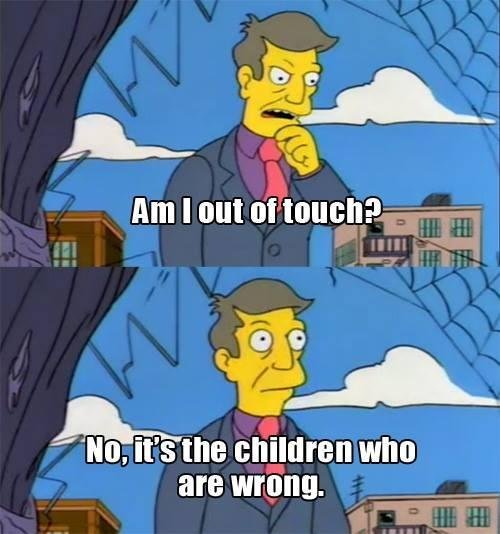

What a nice lady.

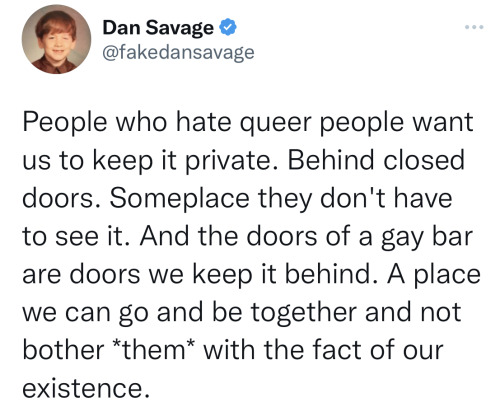
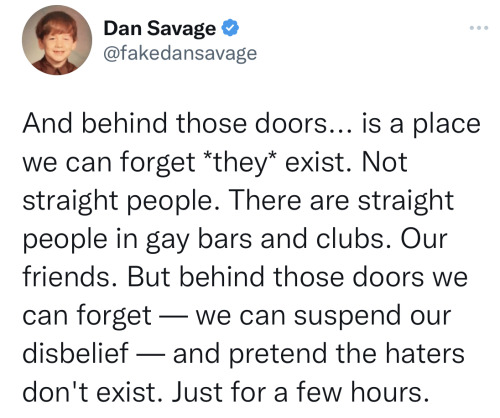
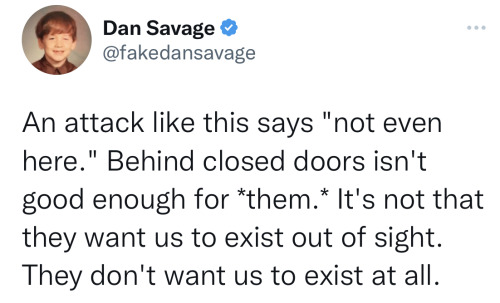
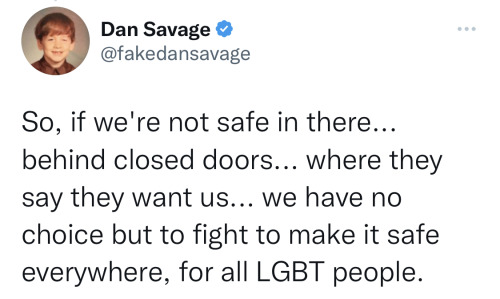

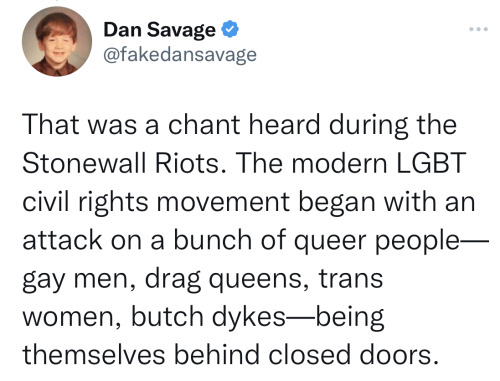

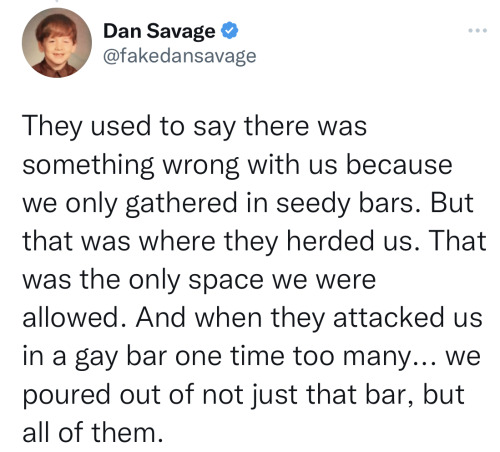





Pro Tip: The Way You End a Sentence Matters
Here is a quick and dirty writing tip that will strengthen your writing.
In English, the word at the end of a sentence carries more weight or emphasis than the rest of the sentence. You can use that to your advantage in modifying tone.
Consider:
In the end, what you said didn't matter.
It didn't matter what you said in the end.
In the end, it didn't matter what you said.
Do you pick up the subtle differences in meaning between these three sentences?
The first one feels a little angry, doesn't it? And the third one feels a little softer? There's a gulf of meaning between "what you said didn't matter" (it's not important!) and "it didn't matter what you said" (the end result would've never changed).
Let's try it again:
When her mother died, she couldn't even cry.
She couldn't even cry when her mother died.
That first example seems to kind of side with her, right? Whereas the second example seems to hold a little bit of judgment or accusation? The first phrase kind of seems to suggest that she was so sad she couldn't cry, whereas the second kind of seems to suggest that she's not sad and that's the problem.
The effect is super subtle and very hard to put into words, but you'll feel it when you're reading something. Changing up the order of your sentences to shift the focus can have a huge effect on tone even when the exact same words are used.
In linguistics, this is referred to as "end focus," and it's a nightmare for ESL students because it's so subtle and hard to explain. But a lot goes into it, and it's a tool worth keeping in your pocket if you're a creative writer or someone otherwise trying to create a specific effect with your words :)
Few of the artist affected by AI art thievery.
Posts by Jon Lam Art.





-
 little-green-forest reblogged this · 2 months ago
little-green-forest reblogged this · 2 months ago -
 darthperineum liked this · 2 months ago
darthperineum liked this · 2 months ago -
 handowls liked this · 2 months ago
handowls liked this · 2 months ago -
 tatteredperv liked this · 2 months ago
tatteredperv liked this · 2 months ago -
 nearsighted-calliope reblogged this · 2 months ago
nearsighted-calliope reblogged this · 2 months ago -
 nickimiamor liked this · 3 months ago
nickimiamor liked this · 3 months ago -
 sundappledfur liked this · 6 months ago
sundappledfur liked this · 6 months ago -
 leave-me-wilddd reblogged this · 7 months ago
leave-me-wilddd reblogged this · 7 months ago -
 starryrika liked this · 8 months ago
starryrika liked this · 8 months ago -
 velvetshaker liked this · 9 months ago
velvetshaker liked this · 9 months ago -
 belle-bete liked this · 10 months ago
belle-bete liked this · 10 months ago -
 augustjustice liked this · 10 months ago
augustjustice liked this · 10 months ago -
 undead-musings-blog reblogged this · 10 months ago
undead-musings-blog reblogged this · 10 months ago -
 accursedvoid reblogged this · 10 months ago
accursedvoid reblogged this · 10 months ago -
 adoresaturnuscore liked this · 10 months ago
adoresaturnuscore liked this · 10 months ago -
 ieatmyownbrainanditsyummy reblogged this · 1 year ago
ieatmyownbrainanditsyummy reblogged this · 1 year ago -
 s-h-y-y-a-n-n-e liked this · 1 year ago
s-h-y-y-a-n-n-e liked this · 1 year ago -
 ondes-martenot liked this · 1 year ago
ondes-martenot liked this · 1 year ago -
 heart-taking-root-in-your-body liked this · 1 year ago
heart-taking-root-in-your-body liked this · 1 year ago -
 mieczy-stiles reblogged this · 1 year ago
mieczy-stiles reblogged this · 1 year ago -
 former-lurker reblogged this · 1 year ago
former-lurker reblogged this · 1 year ago -
 halobenderz reblogged this · 1 year ago
halobenderz reblogged this · 1 year ago -
 tranfelidown liked this · 1 year ago
tranfelidown liked this · 1 year ago -
 rantsofateenagerslife liked this · 1 year ago
rantsofateenagerslife liked this · 1 year ago -
 kominfyrirkattarnef liked this · 1 year ago
kominfyrirkattarnef liked this · 1 year ago -
 honeyteacakes liked this · 1 year ago
honeyteacakes liked this · 1 year ago -
 pressurebrew liked this · 1 year ago
pressurebrew liked this · 1 year ago -
 makeitpoppy reblogged this · 1 year ago
makeitpoppy reblogged this · 1 year ago -
 indulgings reblogged this · 1 year ago
indulgings reblogged this · 1 year ago -
 kiinimi reblogged this · 1 year ago
kiinimi reblogged this · 1 year ago -
 shytravelerstrawberry liked this · 1 year ago
shytravelerstrawberry liked this · 1 year ago -
 jewishfeminist liked this · 1 year ago
jewishfeminist liked this · 1 year ago -
 i-has-no-lif3 reblogged this · 1 year ago
i-has-no-lif3 reblogged this · 1 year ago -
 romqnticstylez reblogged this · 1 year ago
romqnticstylez reblogged this · 1 year ago -
 romqnticstylez liked this · 1 year ago
romqnticstylez liked this · 1 year ago -
 sims2mp3 liked this · 1 year ago
sims2mp3 liked this · 1 year ago -
 quinnifredtt reblogged this · 1 year ago
quinnifredtt reblogged this · 1 year ago
